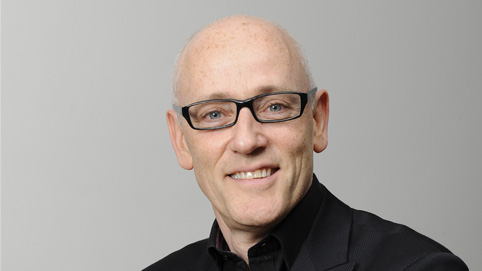London Business School expert urges TV debate viewers to be cautious

A London Business School academic has reminded viewers of the televised election debates that it is far easier to be the challenger than the incumbent.
The dust has settled after an election debate on 2 April which saw all seven party political leaders go head to head. A You Gov poll has suggested that the main party leaders were overshadowed by the minority parties. But a London Business School academic has warned voters not to forget that it is far easier to be the challenger than the incumbent.
Richard Hytner, Adjunct Professor of Marketing, London Business School and author of Consiglieri: Leading from the Shadows, says: “What we learned from the seven political party chiefs who took part in last week’s debate is that it is easier to be the leader of a start-up, a challenger or a niche business than an incumbent.
“Leanne Wood, Natalie Bennett, Nicola Sturgeon and Nigel Farage all played their minority party cards well. Natalie Bennett, Green Party, stressed the need for a stable climate; Leanne Wood, Plaid Cymru, promised a stronger, greener Wales and was tough enough to tell Farage, UKIP, he should be ashamed of himself. Sturgeon, Scottish National party, extended the hand of friendship to England, Wales and Northern Ireland, but left us in no doubt about what she wants – a louder voice for Scotland.
Nigel Farage, looked most at ease, Hytner says: “The polarising Nigel Farage looked most at ease, enjoying the privilege of not having to stand for everyone, just the minority like him who wish to see an end to foreign aid, British services limited to British people, and the door firmly closed on migrants. He took the game to the six whom he banded together as the politically correct, political class, painting himself as the plain spoken patriot. Leaders who follow Professors Goffee and Jones’ encouragement to be themselves more with skill would have approved of Farage, Wood and Sturgeon, in particular."
The incumbent, Hytner reminds us, is in a much more difficult position: “Incumbent Nick Clegg, accomplished stage performer though he is, could not distance himself completely from his collaborator of the last five years, knowing he might prove to be his collaborator again over the next five. Sitting firmly on the fence, Clegg asked us, the voters, to sit on the fence, too.
“Unlike his coalition partner, David Cameron stood firmly by the decisions he has taken. Cameron will have been coached carefully on what we like to see from leaders who inspire our confidence – evidence of credibility. He asked us to stick with the man with the plan and, despite constant goading, mostly kept his cool and his courtesy."
Ed Miliband, who came fourth in the You Gov victor’s snap poll behind Nicola Sturgeon, Nigel Farage and David Cameron, implored us ‘at home’ to make up our own minds.
“He has a vision, he knows who he is for and, importantly, not for and he appeared for the second time to be up for a fight, with Cameron, energy companies, bankers and the rich”, Hytner says.
“But, under what seemed like the excessive influence of media training, he kept turning to camera to address viewers directly. Imploring us ‘at home’ to make up our own minds, he looked at times more like a game show host than a PM in waiting. If he is to walk through the doors of 10 Downing Street, Miliband urgently needs an adviser candid enough to tell him to stop smirking like a schoolboy debater.”
While Hytner suspects this was an ill-employed move, he does conclude that Big Emotion beats Big Data.
“Maya Angelou said that people will forget what you say, forget what you do, but will never forget how you made them feel. Viewers should ask themselves how each of the party leaders made them feel and vote with their hearts.”




